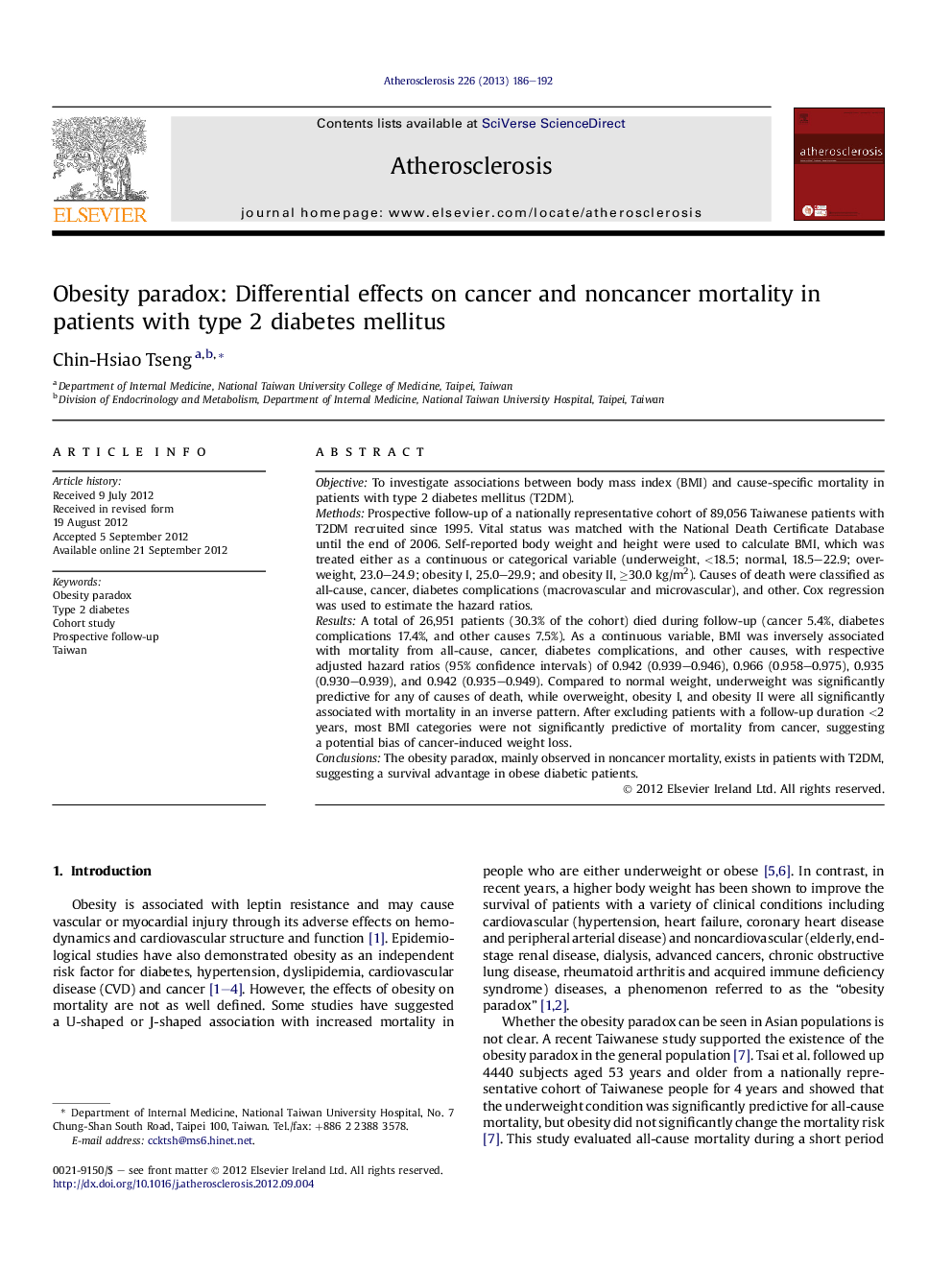| Article ID | Journal | Published Year | Pages | File Type |
|---|---|---|---|---|
| 5947980 | Atherosclerosis | 2013 | 7 Pages |
ObjectiveTo investigate associations between body mass index (BMI) and cause-specific mortality in patients with type 2 diabetes mellitus (T2DM).MethodsProspective follow-up of a nationally representative cohort of 89,056 Taiwanese patients with T2DM recruited since 1995. Vital status was matched with the National Death Certificate Database until the end of 2006. Self-reported body weight and height were used to calculate BMI, which was treated either as a continuous or categorical variable (underweight, <18.5; normal, 18.5-22.9; overweight, 23.0-24.9; obesity I, 25.0-29.9; and obesity II, â¥30.0 kg/m2). Causes of death were classified as all-cause, cancer, diabetes complications (macrovascular and microvascular), and other. Cox regression was used to estimate the hazard ratios.ResultsA total of 26,951 patients (30.3% of the cohort) died during follow-up (cancer 5.4%, diabetes complications 17.4%, and other causes 7.5%). As a continuous variable, BMI was inversely associated with mortality from all-cause, cancer, diabetes complications, and other causes, with respective adjusted hazard ratios (95% confidence intervals) of 0.942 (0.939-0.946), 0.966 (0.958-0.975), 0.935 (0.930-0.939), and 0.942 (0.935-0.949). Compared to normal weight, underweight was significantly predictive for any of causes of death, while overweight, obesity I, and obesity II were all significantly associated with mortality in an inverse pattern. After excluding patients with a follow-up duration <2 years, most BMI categories were not significantly predictive of mortality from cancer, suggesting a potential bias of cancer-induced weight loss.ConclusionsThe obesity paradox, mainly observed in noncancer mortality, exists in patients with T2DM, suggesting a survival advantage in obese diabetic patients.
⺠Underweight diabetic patients (BMI < 18.5 kg/m2) have the highest mortality rate. ⺠BMI is inversely associated with all-cause mortality in diabetic patients. ⺠In cause-specific analyses, obesity paradox is observed in noncancer mortality. ⺠Obese diabetic patients may have a survival advantage.
